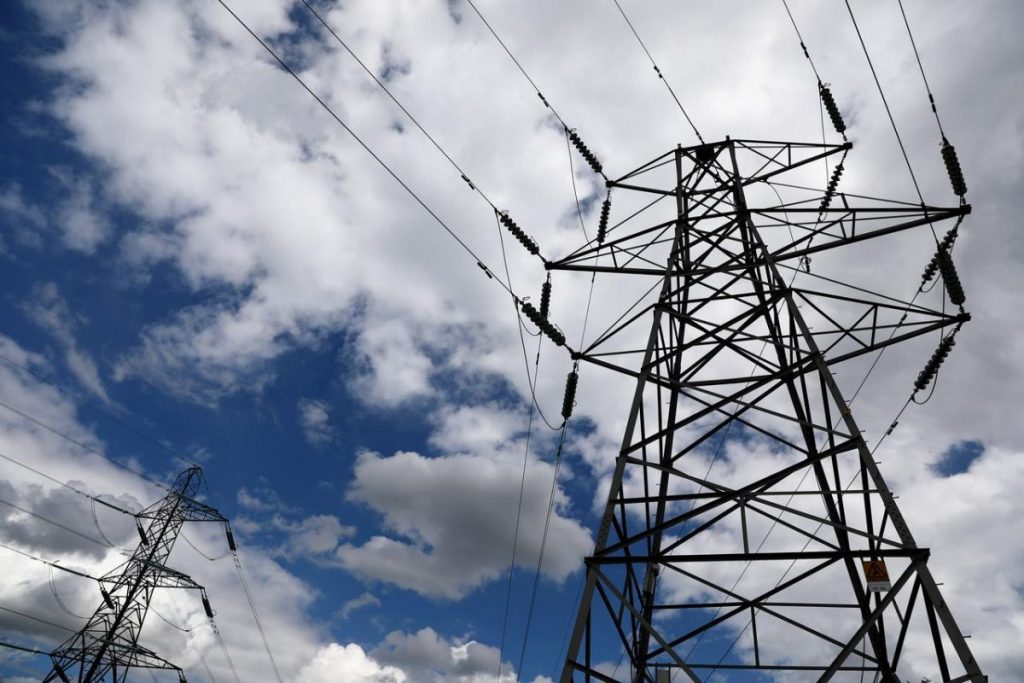 04 January 2014, Lagos: In view of the efforts made last year by regulators in various sectors sectors of the economy to put service providers and manufacturers on their toes, 2014 might be the year for consumers to win the war against abuse and poor services.
04 January 2014, Lagos: In view of the efforts made last year by regulators in various sectors sectors of the economy to put service providers and manufacturers on their toes, 2014 might be the year for consumers to win the war against abuse and poor services.
The Nigerian consumer has always reeled under poor services. From telecoms to consumer goods providers, he has oftentimes been short changed. But in recent years, consumer advocate groups have sprung up to defend him. The efforts of the groups have also made government to establish a consumer protection council, which is grappling with consumer issues.
Strengthening CPC
For effective operations, having a well empowered Consumer Protection Council (CPC) will be a breakthrough for Nigerians in 2014. Over the years, concerned citizens have raised alarm that the council lacked the necessary legal and financial muscles to pursue issues related to abuse to the logical conclusion.
Toward the end of last year, the House of Representatives lamented the poor funding of CPC, saying it is hindering government’s effort to protect Nigerians against market abuses. The Chairman, House Committee on Commerce, Mr. Sylvester Ogbaga made the assertion when he led Committee members on an oversight visit to the Council’s headquarter in Abuja.
Mr. Ogbaga, describing CPC’ 2013 budget as grossly inadequate and wondered how a government agency considered to be crucial to the economic well being of Nigerians would be ‘financially hamstrung’.
In a related development, the council’s director general, Mrs. Dupe Atoki, admitted during a press conference in December that the council had a bill before the national assembly to review the CPC act. She however added that the bill will have to be reviewed to take care of more salient issues on CPC activities.
Responding to issues related to the legal and structural deficits of the council, Mrs. Atoki said efforts are being made to expand the council’s operational bases to be able to reach out to as many as possible Nigerians.
“Beyond our offices in the geo-political zones like Osogbo, Port Harcourt and other places, the council is looking at the possibility of opening offices in more states for easy accessibility to consumers. We have also intensified our awareness campaign to further educate consumers on their rights and put service providers and good manufacturers on their toes,” she said.
Flushing out of fake products
The Standard Organisation of Nigeria and the CPC intensified effort last year to rid the market off sub-standard products. At separate visits to the computer village in Lagos, the two agencies gave marching order to members of Phones and Allied Products Association of Nigeria (PAPAN), to withdraw fake phones from the market before the end of this month.
At a meeting held with the leadership of the association two weeks ago, CPC, through the head of its Lagos office, Mr. Tam Tamunokonbia, said the market will no more be a dumping ground for promoters of fake phone devices. Treasurer of the Association, Mr. Ifeanyi Akubue, pleaded on behalf of their members, saying the issue of fake phones was embarrassing to the Association. He however pointed out that they had signed a document with the Standards Organisation of Nigeria, SON, to remove such phones from the market before the end of January 2014.
“Our chairman and the Director-General of SON, Odumodu, have signed a written document to this effect. The truth of the matter is that we the market leaderships are not comfortable with this kind of harassment and embarrassment in the market, so we are working within ourselves to stop it,” he said. He also disclosed that the leadership of the association had visited about 50 factories in China and told the manufacturers what Nigerians wanted. Aside phone markets, it is expected that influx of sub-standard products will be checked in other sectors in 2014.
Better electricity supply
Considering the excitement that greeted the handing over of power distribution and generation companies, created out of PHCN, to private owners last year, it is expected that the exercise will end the regime of epileptic power supply.
Before the end of 2013, reports from a few places showed considerable improvements. If this continues, it is obvious that 2014 will be better than previous years in the sector. At the taking over point, government and the new owners promised that the new era would be the end of the perennial crisis bedeviling the power sector. For instance, the Vice Chairman, Integrated Energy Distribution and Marketing Company (IEDC), Mr. Olatunde Ayeni, expressed the optimism that electricity consumers would witness a new dawn.
He said the commitment of President Goodluck Jonathan to the privatisation of the power sector convinced the company to submit a substantial bid for the Ibadan Electricity Distribution Company. The Ibadan distribution channel supplies electricity to Oyo, Osun, Ondo, Ogun, Ekiti and parts of Kwara, Kogi and Niger states
The decision of the federal government to privatise the power sector, and the subsequent assurance by the new owners that it would be a swell regime for consumers, elicited hope, when the companies were finally handed over. Given the poor state of power supply before the present regime, which had affected businesses across board, improved supply in 2014 will gladden the mind of consumers.
Mr. Ayoola Makanjuola, a lawyer, has called on the new owners to make pre-paid meters available in 2014 to settle issues related to discriminatory payments.
“The inability to get the pre-paid meters already paid for is frustrating as this will enable consumers to know their consumable rates. As at now, charges are still based on estimation. In 2014, one will expect this area to be fully looked into.
“Nigerians have suffered so much and I don’t think they can hesitate to pay commensurately if the service in the power sector is improved. At this point, I will advise that the investors borrow a leaf from the early operators in the telecommunication sector, who after paid huge amount to secure licence still went ahead to invest in infrastructure development. Today the telecom market is better for it,” he said.
Quality telecom services
From this month, it may not be business as usual for telecommunications operators as the Federal Government has thrown its weight behind the Consumer Protection Council to deal with any operator that fails to meet previously agreed targets on service quality.
For years, Nigerian consumers have borne the brunt of poor services and adulterated goods, with little or no effort made by individuals or government agencies to bring perpetrators to book. Every day, cases of abuse of consumer rights are brought to public glare but they naturally fizzled out as a result of weak regulatory system.
However, if the recent development, which involves collaboration between the Consumer Protection Council (CPC), and other stakeholders in the telecommunications industry is anything to go by, then succor might have come in the way of helpless subscribers, who have for over a decade remained at the mercies of telecommunication operators, whose priority in the market is to make profit, far above service delivery.
At a press conference held in Lagos on recently, the CPC came out from its shell, albeit in a more proactive manner to declare war on telco operators, who see Nigeria as a market of anything goes. At the conference, the council threatened to prosecute telecommunication service providers who continue to render poor quality services to subscribers. CPC Director General, Mrs. Dupe Atoki gave the warning alongside the Minister of Communication Technology, Mrs. Omobola Johnson and Executive Vice Chairman, Nigerian Communications Commission, Dr. Eugene Juwah. Atoki said the errant operators risked prosecution and jail terms of up to five years if ongoing investigations revealed that they had deliberately short-changed Nigerians through poor service delivery.
“The CPC can make orders in the interest and protection of consumers, and disobedience is also criminalised by law. While the NCC can impose fines on an offending operator, the CPC can, in addition, commit such recalcitrant offender to jail term for contravening any consumer protection enactment,” she explained.
Earlier, the minister had admitted that the issue of poor service has been a persistent one over a number of years and that it appeared to have worsened in the last twelve months, despite the fact that the ministry has been working hard to provide an enabling environment for the deployment of ICT infrastructure, especially in the area of base stations and fibre optic cable.
Mrs. Johnson pointed out that the collaboration with CPC and NCC to protect subscribers, who daily bear the brunt of quality of service (QoS), will deliver appropriate customer redress by telecoms subscribers in the area of rebate on airtime, usage irregularities, inaccurate billing and opportunities to opt out of unsolicited SMS messages.
Meanwhile, the operators were given till the last day of 2013 to put their operations in order or face sanction. Observers believe that 2014 will be a year of good services if government and its agencies stand by their words. (This Day)



